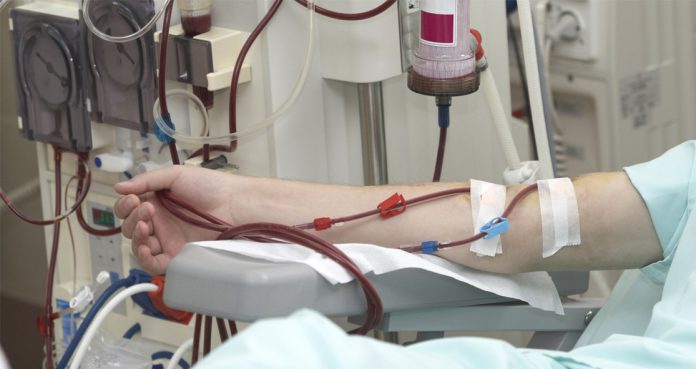For chronic kidney disease, especially in the later stages, dialysis is often advised, which is quite painful and a bit invasive. To overcome such a situation, investigators and enterprises are trying effortlessly to improve the process of dialysis.
Recently, a team of researchers from Humacyte Inc., Duke University and Yale says that they are close to making use of bioengineered blood vessels practically. By using this, it would be possible to replace donor tissues and synthetic polymers. The risks associated with the traditional way include inflammation or immune system rejection at times.
Dialysis procedure is done with the help of a machine that pulls blood out of a blood vessel for filtration and pumps the blood back inside the body. Usually, the process involves the use of an extra blood vessel, which is either synthetic or donated, to implant in the patient’s arm, so that blood vessel channels blood into the dialysis machine.
The newly innovated method is now heading to clinical experiments and it would be expected to allow the patient’s own cells to produce that extra blood vessel for themselves.
The scientists behind this discovery lined a biodegradable polymer tube with donor’s vascular cells who is deceased. After eight weeks of continuous monitoring, the cells reproduced and a new tube is formed while the polymer structure broke down. Subsequently, the researchers collected the cellular tube and managed to implant it into a patient’s arm. The process was conducted on 60 patients. Progressively, their cells migrated into the tubes between one and two years, and multiplied to produce mature blood vessels.
The process described above is similar to the medical device company Aditlys. This company hopes to implant a polymer tube into a person’s arm. In that, the patient’s cells would form a new fresh blood vessel surrounding the synthetic tube, which would be dissolved ultimately. According to Aditlys website, that project work is about to enter its final stage. Now, it is difficult to predict which solution will hit the market first, but if these trials are successful, the dialysis patients in the U.S. could ultimately find better options.























